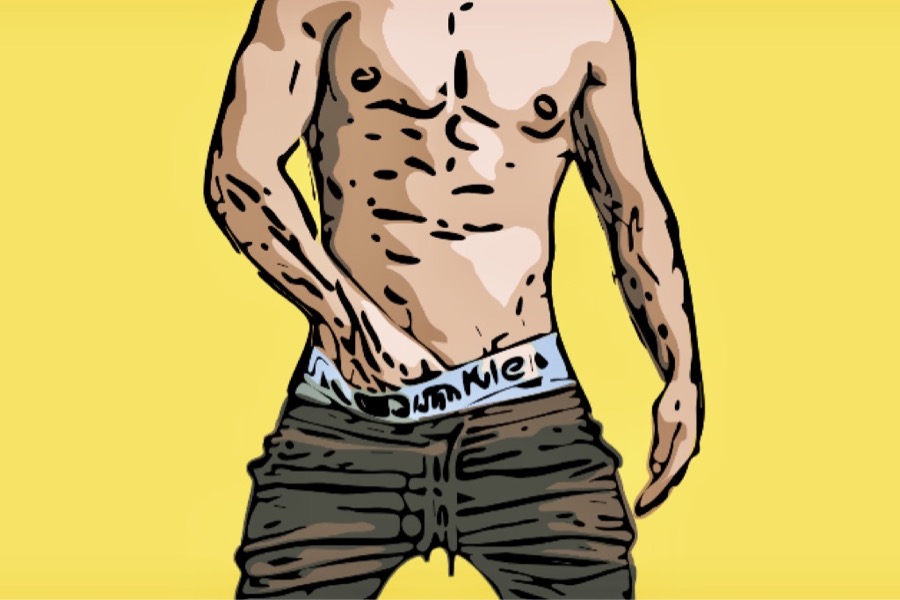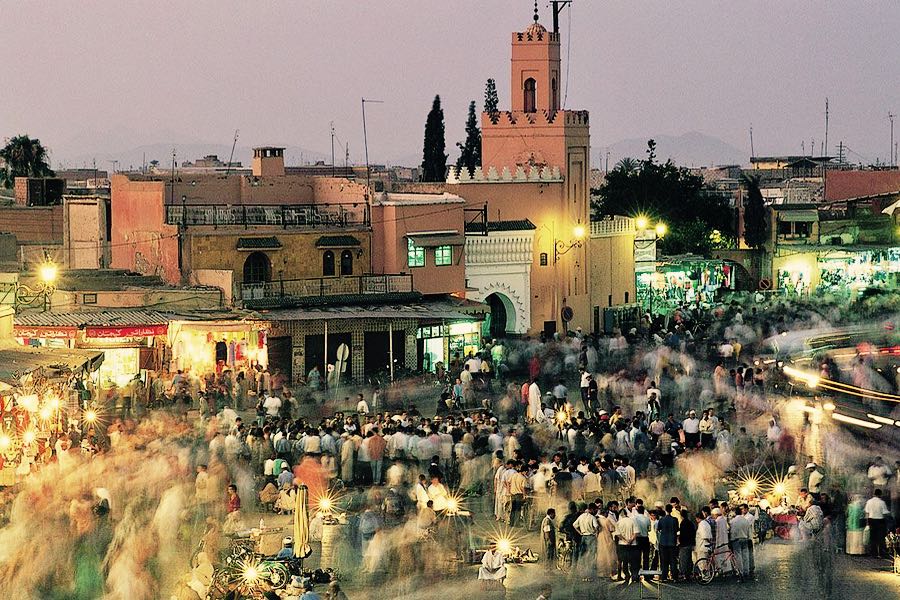My mother ends all her phone calls by saying: “Koun rajul, koun rajul Anas” several times. It is a phrase that I have always heard. I think I understand what my mother means with that sentence, I think I understand what the majority of my Moroccan compatriots mean with the sentence: “Koun rajul, be a man.”
If you close your eyes, you can see her standing there, in front of you: my mother, beautiful and extravagant. She has the fairest of skin, her hands decorated with henna and some rebellious strains of hair poking out of the her veil. She looks virtuous and innocent yet her demeanor -in some cases- shows no fear. She only knows the practical life and she’s not ashamed to count the change in front of the cashier. If she was here -while I write this piece- she wouldn’t understand. She simply wouldn’t understand.
She would see her son focused on writing or studying. She would silently stand behind me like she has done during the long nights of study for the high school diploma: when I was up until 3 am studying philosophy. She would sit next to me while reviewing the lesson out loud. That was her way to help me, her way to understand.
She appears, appears and wanders like an iceberg, with no roots, with no commotion. Yet she is there, still. She wanders inside me, with her long, messy black hair partially covering her face, heart in hand, wearing shame on her sleeves, and with an humble heart like that of a child. “I can’t help you, I can’t teach you to read and understand what you’re studying but I can sit here, waiting for you to finish, to be with you.” A caress, a kiss, a small prayer. A kiss goodnight on the forehead and then she would slip away, in the darkness of the room.
How could I greet her in any other way? My mother is illiterate. She doesn’t’ know about writing or words different from hers. “Koun rajul” is what my mother knows. “Koun rajul.”
I was born in a household made of only women: we lived at the end of a hill, in rural Morocco. A place made of heavy stones, of dirt seeping through your shoes, of sand hitting your eyes. A place where the dirt remains on you even after cleaning yourself. What I’ve learned there was the making of a small pink republic, lead by my grandmother. My grandmother who was like Hasan II. My grandmother as one of the Azar Nafisi’s heroines. From an early age, I’ve always had to deal only with women: my mother, my seven aunts, my grandmother’s sister, my eleven cousins and all those women who stopped by to watch the soap operas.
We had to be careful because the television’s batteries always died on the most crucial scenes: during a kiss, an erotic moment, a betrayal or a marriage proposal. We then all ran to the only other house in the village with a television. A swarm of women screaming and in love with life, waiting for freedom which was set between the television and the myth of Europe.
The men of the house were all far away, scattered throughout Europe, seeking fortune: including my father. That household of women, almost all illiterate, sometimes a little hysterical and sometimes a little bit Sapphic, was for me a school of feminism: “Kouni mra! Diri li li bghaiti” Be a woman! Do what you want.
You’re probably wondering why I’m talking about all of this: being a man or a woman. About the veiled machismo, which many Arab women have incorporated in their life, over the years of their education. About this very fragile feminism: sometimes primitive and removed, especially in my Morocco.
“Be a woman, do what you want” is the answer that many Moroccan women have chosen as response to the campaign against the bikinis which have invaded the Arab world for some time now and that recently have been on the front page of many Moroccan newspapers. On the other hand, “koun rajul” is the slogan used by many men to invite other men to not let their daughters and their wives out of the house wearing bikinis or tight clothes.
Once again, these female activists and I have used the same tactic: irony, speech and the internet. The slogan went viral in a matter of hours and much of the country is talking about it. On the one hand: men and women, believers, traditionalists, and imams who want to see good-mannered, tempered women walking the streets and beaches of Morocco. On the other hand: all those women, and a good amount of men claiming freedom and invoking the slogan: “Be woman, do what you want”.
This constant men-controlled mania about clothing is an imposition that has no boundary. It has created misogynist women: fruit of a patriarchal and sexist society and my mother is somehow part of it. They are victims and executioners. The memory of that freedom, in that house on the hills, is now far away.
In my native country the motto is: “No to bikini” and in my Europe we find a certain transversal political component -going from right to left – which praises the “No to the burkini.“ The burkini is a garment often worn by Muslim women at the beach that almost completely covers the body but leaves feet, hands, and face visible. Several newspapers reported of Muslim being banished from swimming pools or beaches, for the simple reason of wearing said garment.
Apparently, nobody is saved! From East to West everyone has something to say and wants to impose their ideas on women: how to dress, how to wear makeup, how to be a woman. Bikini and burkini. Allow me the joke: I would be extremely happy, if by chance out of all of this they would discover the wonderful art of Burkina Faso.
Ah! These macho men, who do not know how to keep it in their pants, who are in a requiem aeternam state yet want to ejaculate everywhere! They want to protect their territory just like canines would do. They want to impose their ideas, to safeguard the “holiness of women.”
Pardon the language but I am venting! A very superficial complaint that will not go deep into the bikini-burkini or “yes to veil – no to the veil” issue. Dear sultans of decency, I refer back to the famous phrase that many, while in an eternal moment of blindness, tend to forget: “My freedom ends where that of others begins.”
My name is Anas and was chosen by my cousin. It means “friendship” and I can only be on the women’s side and precisely be their friend. I can only be on the giver’s side, never on the taker’s. Being on the side of Moroccan women. From the side of my mother, my sister and mine. I stand with my mother, my sisters and by me. I stand with all of those strange and lovable women, who lived up there on that hill.
Anas Chariai
translation by Barbara Burgio
©2018 Il Grande Colibrì
photo: Il Grande Colibrì
Read also:




